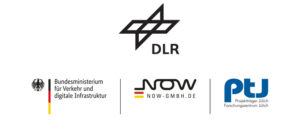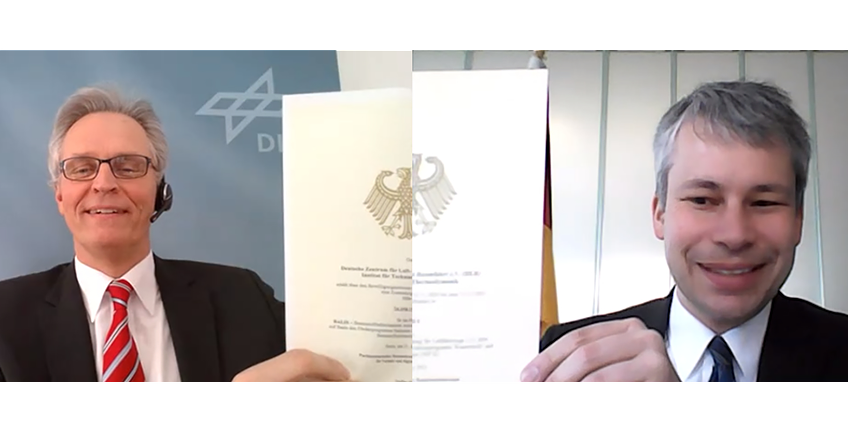The German Aerospace Center (Das Deutsche Zentrum für Luft- und Raumfahrt (DLR)) is taking the next step towards hydrogen-based passenger aviation without pollutant emissions. Parliamentary State Secretary Steffen Bilger today presented the over 26 million euro subsidy note to the BALIS project of the DLR Institute of Engineering Thermodynamics.
The BALIS project is developing the first fuel cell powertrain for aircraft in the megawatt output range.
“In this decade we will set a new course and switch our mobility to CO2-free or low-CO2 fuels”, says Steffen Bilger, Parliamentary State Secretary at the Federal Ministry of Transport and Digital Infrastructure. “Hydrogen mobility from renewable energy has an important role to play here. It can be used as a fuel for all transport modes – also aircraft. The goal is emission-free aviation – ideally with jobs and added value in Germany.”
“Whether for air, road, rail or sea – DLR is a pioneer in the development and application of fuel cells, able to draw on its expertise and experience from years of research work. With projects such as BALIS, we are setting the standards of tomorrow as well: towards emission-free mobility that is based on hydrogen as another pillar in our energy system”, explains Prof. Karsten Lemmer, Member of the Executive Board of DLR for Energy and Transport.
In focus: Fuel cell powertrain and a unique test environment
The BALIS projects aims to develop and test a fuel cell powertrain with an output of around 1.5 megawatts. This will mean the construction of a regional aircraft with 40 to 60 seats and a range of 1,000 kilometres. The DLR is also building a unique test facility for this purpose. It constitutes the necessary overall system, in other words the entire hardware and the necessary infrastructure. This includes the fuel cell system itself, the hydrogen tanks, electric engine as well as the control and regulation technology. This test environment is complex and at the same time, very flexible. It facilitates research and development work in the most diverse framework conditions, requirements and guidelines applied to the aviation sector.
The BALIS project is funded under the National Innovation Programme for Hydrogen and Fuel Cell Technology (NIP) in the amount of 26 million euros by the Federal Ministry of Transport and Digital Infrastructure (BMVI) and is financed through the Energy and Climate fund. The funding guideline is coordinated by NOW (National Organisation Hydrogen and Fuel Cell Technology) and implemented by Projektträger Jülich (PtJ).
“The BALIS project demonstrates that hydrogen propulsion in aviation is real and feasible”, says Kurt-Christoph von Knobelsdorff, Managing Director (Chair) NOW GmbH. “We are therefore continuing the success story of NIP, the vehicle through which NOW and PtJ, using BMVI funding, have been systematically developing hydrogen and fuel cell technologies from R&D phase to market maturity since 2008. NIP was and continues to be a pillar of the national hydrogen strategy. Only with highly innovative technologies can Germany successfully participate in a global hydrogen economy.”



